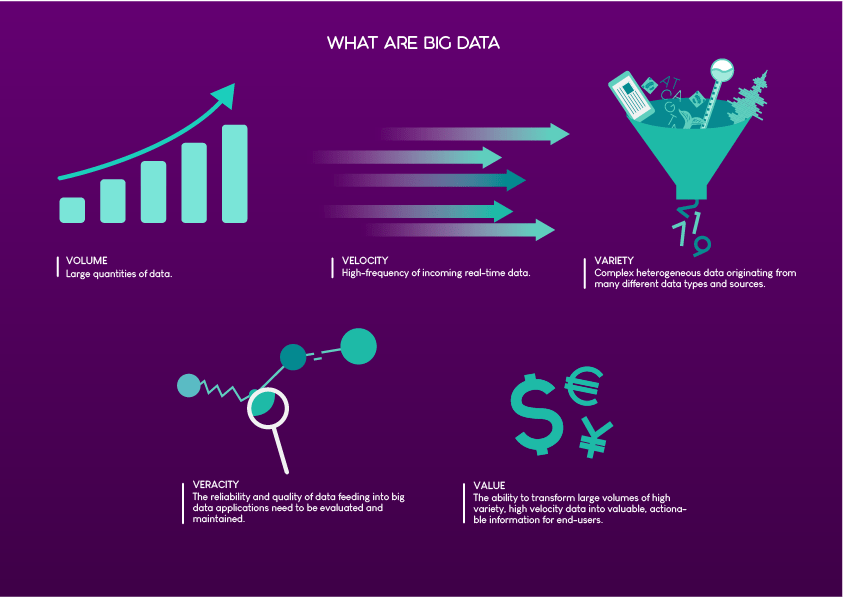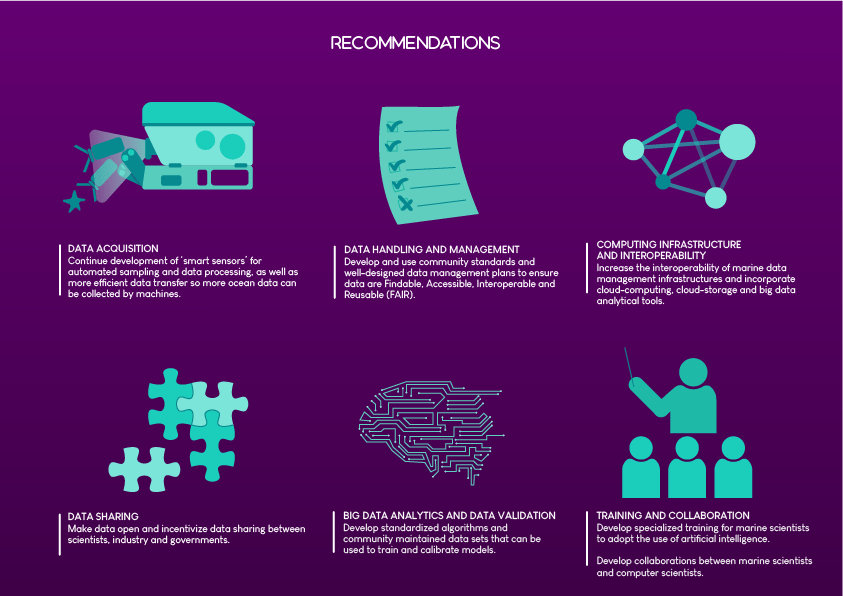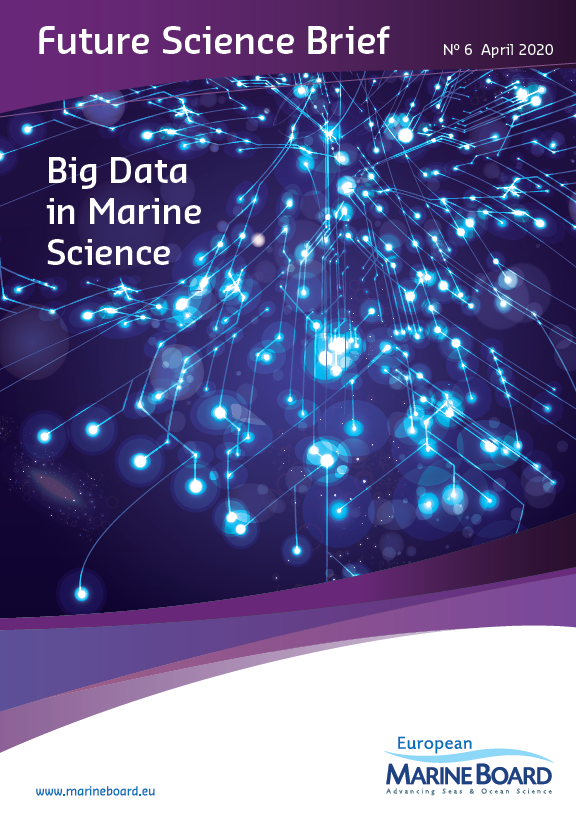Marine science is rapidly entering the digital age. Expansions in the scope and scale of ocean observations, as well as automated sampling and ‘smart sensors’, are leading to a continuous flood of data. This leads marine science to enter the world of big data, where we are faced with large volumes of high variety data collected at high velocity. Big data offer the potential to transform the way we study and understand the ocean through more complex and transdisciplinary analyses and offers novel approaches for the management of human use of marine resources. However, more data do not necessarily mean we have the right data to answer many critical scientific questions and to make well-informed, data-driven management decisions. To increase the value of marine big data, it must be openly shared, interoperable, and available for complex analyses that can be based on artificial intelligence.

Future Science Brief on ‘Big Data in Marine Science’
 The European Marine Board’s (EMB) 6th Future Science Brief on ‘Big Data in Marine Science’ presents recent advances, challenges and opportunities for big data to support marine science and covers topics including climate and marine biogeochemistry, habitat mapping for marine conservation, marine biological observations, and food provision from seas and the ocean. The document was launched on 28 April 2020 during a dedicated webinar, with over 400 participants, and is the outcome of the work of the EMB Working Group on Big Data, which kicked-off in May 2019. The Future Science Brief and infographic summaries are available on the EMB website and video recordings of the presentations are available on the EMB YouTube channel.
The European Marine Board’s (EMB) 6th Future Science Brief on ‘Big Data in Marine Science’ presents recent advances, challenges and opportunities for big data to support marine science and covers topics including climate and marine biogeochemistry, habitat mapping for marine conservation, marine biological observations, and food provision from seas and the ocean. The document was launched on 28 April 2020 during a dedicated webinar, with over 400 participants, and is the outcome of the work of the EMB Working Group on Big Data, which kicked-off in May 2019. The Future Science Brief and infographic summaries are available on the EMB website and video recordings of the presentations are available on the EMB YouTube channel.
Recommendations
During the webinar Sheila Heymans, EMB Executive Director, presented an overview of the document and the key recommendations needed to fully bring marine science into the world of big data. These include open data sharing; data interoperability; availability of cloud computing infrastructures; continued development of ‘smart’ sensors to enhance data collection; specialized training programmes for marine scientists to adopt artificial intelligence in their work; and increased collaborations between marine scientists, computer scientists, data scientists and data managers.

Detailed examples
The webinar included four TED-style talks from selected co-authors of the document. Jerry Tjiputra (NORCE Norwegian Research Centre) illustrated how big data can improve climate modelling and forecasting that feeds into global climate negotiations and helps to achieve the goals of the Paris Agreement. Federica Foglini (Institute of Marine Science – Italian National Research Council) presented how big data can be used to create high resolution, multidisciplinary habitat maps for planning a new marine protected area in the Bari Canyon in Italy. Matthias Obst (University of Gothenburg) demonstrated how machines are drastically changing the way we observe biological processes in the ocean, and Ketil Malde (University of Bergen and Institute of Marine Research) presented on advances in machine learning and the data driven future of marine science.
EMB Forum on Big Data in Marine Science
Due to the COVID-19 pandemic, the 7th Forum has been postponed to Friday 23 October 2020. The focus of the Forum will be Big Data in Marine Science, given its essential role during the UN Decade of Ocean Science for Sustainability. You are invited to engage in the conversation and contribute ideas to feed into the Forum via the EMB LinkedIn page and Twitter (using #EMBForum). The registration for the 7th Forum will open soon on the EMB website.
For more information please contact: Dr. Britt Alexander, Science Officer, European Marine Board Email: balexander@marineboard.eu
The European Marine Board (EMB) is a leading European think tank in marine science policy. EMB is a network with a membership comprising over 10,000 marine scientists and technical staff from the major national marine/oceanographic institutes, research funding agencies and national networks of universities from countries across Europe. The Board provides a platform for its member organizations to develop common priorities, to advance marine research, and to bridge the gap between science and policy to meet future marine science challenges and opportunities. The Belgian Federal State is represented in the EMB by the Belgian Federal Science Policy Office (BELSPO) and in the EMB Communications Panel by the Royal Belgian Institute of Natural Sciences (RBINS). The long-term storage, scientific processing and publication of Belgian marine big datasets at RBINS is taken care of by the Belgian Marine Data Centre (BMDC). Both RBINS datasets and datasets of partners and projects are eligible.

